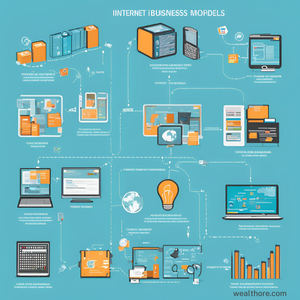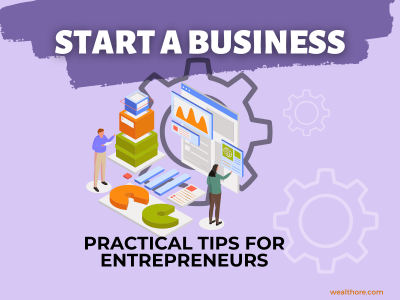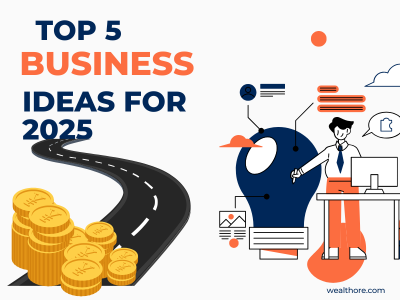Have you ever wondered how the internet continues to reshape the way we do business? As the digital landscape evolves, internet business models are adapting and innovating at an unprecedented pace. It is crucial for entrepreneurs and investors to stay ahead of the curve by understanding the emerging trends and strategies that will dominate the online marketplace. So, what does the future hold for internet business models, and how can you position yourself for success?
Understanding Internet Business Models
Internet business models refer to the strategies companies use to generate revenue and sustain profitability in the online environment. These models have evolved significantly since the early days of e-commerce, driven by technological advancements, consumer behavior shifts, and market demands. Several key business models has shaped the digital economy, offering new opportunities for growth and innovation.
Subscription-Based Models
One of the most resilient and profitable internet business models is the subscription-based model. Companies like Netflix, Spotify, and Amazon Prime have set the standard for this approach, providing consumers with ongoing access to products or services in exchange for a recurring fee. We can expect to see even more businesses adopt this model, particularly in sectors like digital content, software, and e-learning.
For instance, platforms offering specialized content, such as online courses or niche entertainment, will continue to thrive under the subscription model. This approach not only ensures a steady stream of revenue but also fosters customer loyalty and long-term engagement. As competition in the digital space intensifies, businesses that can create unique, value-driven subscription services will have a significant advantage.
Freemium Models
The freemium model, which combines free and premium offerings, will also remain a popular internet business model beyond 2024. This approach allows companies to attract a large user base by offering basic services for free while monetizing premium features or content. This model is particularly effective for software, mobile apps, and online services, where users can easily upgrade to paid plans once they experience the value of the product.
In the future, we may see more businesses refining their freemium strategies to strike the right balance between free and paid offerings. For example, gaming companies might offer free-to-play games with in-app purchases, while SaaS (Software as a Service) platforms could provide limited free access to essential tools, encouraging users to upgrade for more advanced features.
E-commerce and Direct-to-Consumer (DTC) Models
E-commerce has been a dominant force in the internet business landscape for years, and its influence will only grow beyond 2024. The direct-to-consumer (DTC) model, where brands sell directly to customers without intermediaries, will continue to disrupt traditional retail. This model allows businesses to control their branding, customer experience, and pricing, leading to higher profit margins and stronger customer relationships.
As more consumers turn to online shopping, especially through mobile devices, e-commerce businesses that can offer seamless, personalized experiences will stand out. Innovations in logistics, such as faster shipping options and improved inventory management, will also play a crucial role in the success of DTC brands. Additionally, the rise of social commerce, where shopping is integrated into social media platforms, will create new opportunities for brands to connect with consumers and drive sales.
Platform-Based Models
Platform-based models, where businesses create ecosystems that connect buyers, sellers, and service providers, will continue to shape the internet economy beyond 2024. Companies like Airbnb, Uber, and Etsy have demonstrated the power of this model, leveraging technology to facilitate transactions and interactions between different parties. In the coming years, we can expect to see more niche platforms emerge, catering to specific industries or communities.
For example, platforms that connect freelancers with clients, artisans with buyers, or even healthcare providers with patients, will gain traction as consumers seek more tailored and efficient services. The success of platform-based models will depend on their ability to scale, attract a critical mass of users, and maintain trust and transparency within their ecosystems.
Decentralized and Blockchain-Based Models
One of the most exciting developments in internet business models is the rise of decentralized and blockchain-based models. These models leverage blockchain technology to create decentralized networks that operate without a central authority. We continue to see a growing number of businesses adopting this approach, particularly in sectors like finance, supply chain management, and digital identity.
Decentralized finance (DeFi), for example, allows users to access financial services without relying on traditional banks, using blockchain to facilitate peer-to-peer transactions. Similarly, blockchain-based platforms can offer more secure and transparent supply chain tracking, ensuring the authenticity of products and reducing fraud. As these technologies mature, they will open up new possibilities for internet business models that prioritize security, transparency, and user empowerment.
Hybrid Models
Finally, hybrid models that combine elements of different internet business models will become more prevalent beyond 2024. As businesses seek to diversify their revenue streams and adapt to changing market conditions, they will experiment with blending subscription, freemium, DTC, platform-based, and decentralized models. This approach allows companies to leverage the strengths of multiple models while mitigating their weaknesses.
For instance, a company might offer a freemium service with optional subscription upgrades, while also creating a platform that connects users with third-party providers. By embracing hybrid models, businesses can stay agile and responsive to emerging trends, ensuring long-term success in a dynamic digital landscape.
Preparing for the Future
As we move through 2024 and beyond, the digital economy will continue to evolve, presenting new challenges and opportunities for businesses. To thrive in this environment, entrepreneurs and investors must stay informed about emerging internet business models and be willing to adapt their strategies accordingly. By understanding the key trends and technologies shaping the future of online commerce, you can position yourself for success in the years to come.
Whether you’re an established business looking to innovate or a startup seeking to disrupt the market, the internet business models of today offer a wealth of opportunities for growth and profitability. Stay ahead of the curve by exploring new models, experimenting with hybrid strategies, and embracing the latest technological advancements. The future of internet business is bright—are you ready to seize it?
Ready to learn more about emerging business trends? Check out our comprehensive guide on future-proofing your business. For an in-depth look at how blockchain is transforming industries, visit Blockchain Revolution.
Have any questions or insights? Drop us a line at co@wealthore.com and let’s discuss how you can leverage these trends for your business growth.







